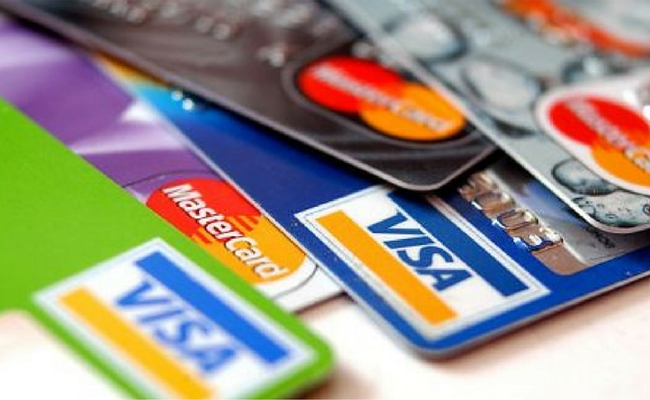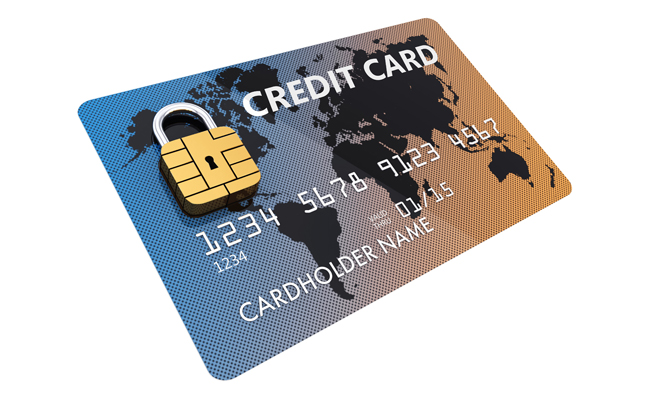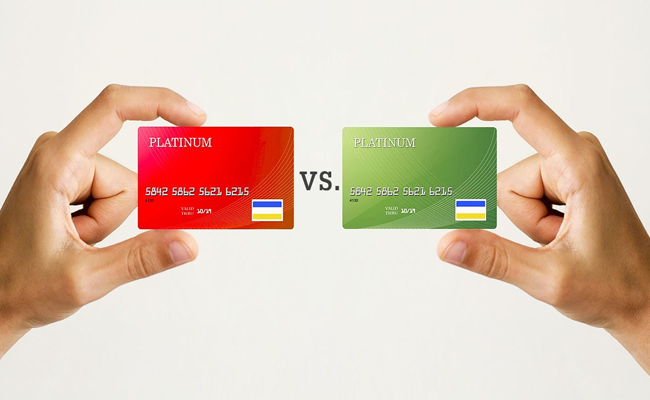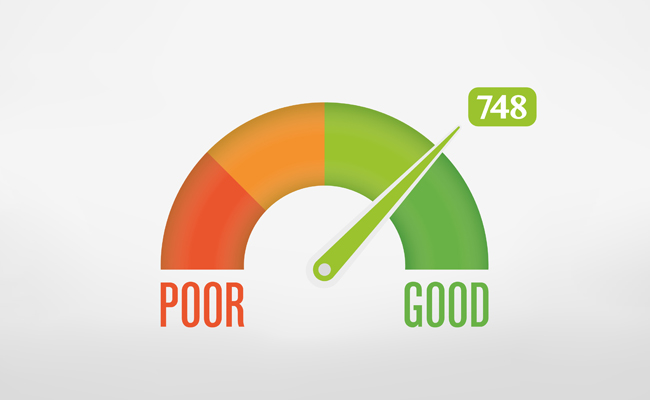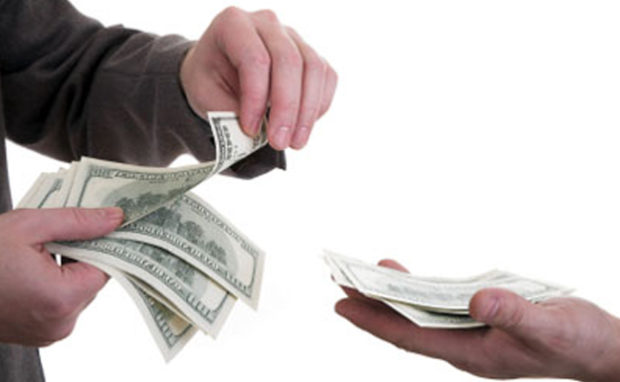Should I Get a Credit Card: Things You Should Know
Whether you should get a credit card is a pivotal financial decision that warrants careful consideration. While they can offer convenience and rewards, they also carry inherent risks.
It is essential to assess one’s financial discipline and responsibility before proceeding. Credit cards can assist in building credit history and providing a safety net during emergencies. Additionally, they may offer rewards programs, purchase protection, and the ability to track expenses easily. However, they can lead to impulsive spending, debt accumulation, and high-interest charges if not managed prudently.
This article will give you vital information about credit cards and if it suits your lifestyle.
What Is a Credit Card?
Credit cards function as a financial tool that allows individuals to make purchases and borrow money up to a certain credit limit. There may be interest that you have to pay once your loan payment is due. Spending the whole balance when it is due normally means you pay zero interest rate on your purchase. If less than the entire balance is paid, you’ll pay interest. Your interest accrues interest charges on your average daily balance.
Are you ready for a Quick Quiz?
Credit vs. Debit Card
Credit and debit cards are good hassle-free alternatives for cash. The difference between the two is that debit cards rely from the money you deposit in it. You cannot get an amount that exceeds the money you have in your card. Meanwhile, credit cards allow you to borrow money within your limit as long as you repay it every month.
Both credit and debit cards are beneficial to the user if handled right. However, it is up to you to choose what fits your budget and lifestyle.
Read More: Best Cash Back Credit Cards
The Basics of Credit Card
Application
You must typically apply with a bank or financial institution to obtain a card. They will assess your creditworthiness based on income, credit history, and debt-to-income ratio.
Approval and Credit Limit
If approved, the issuer assigns you a credit limit, the maximum amount of money you can borrow using the card.
Card Usage
Once you receive your card, you can use it to purchase at various merchants or online platforms. The card contains a unique number that is linked to your account.
Billing Cycle
Credit cards operate on billing cycles, usually lasting around 30 days. Your purchases during this period are recorded and added to your card balance.
Statement Generation
At the end of each billing cycle, the card issuer generates a statement that lists all the transactions and the outstanding balance.
Grace Period and Due Date
Credit cards typically provide a grace period, usually 20-25 days, during which you can pay your balance in full without incurring any interest charges. The statement will specify the due date you must make at least the minimum payment.
Minimum Payment and Interest Charges
If you cannot pay the full balance by the due date, you can make a minimum payment, a small percentage of the total balance. However, any remaining balance accrues interest at the card’s annual percentage rate (APR), which can be quite high.
Interest and Fees
Credit cards often charge interest on the remaining balance, known as revolving credit. Additionally, some cards may have annual fees, late payment fees, or foreign transaction fees.
Credit Score and History
Proper card usage and timely payments can positively impact your credit score and help build a good credit history. Conversely, late charges or high credit utilization can have a negative effect.
Read More: Best Credit Card Utilization Calculator
Pros of Getting A Credit Card
There are several advantages or pros to getting a credit card. Here are some of the key benefits:
1. Convenience: These offer a convenient method of payment, allowing you to make purchases both in-store and online. They eliminate the need to carry large amounts of cash and provide a widely accepted payment option.
2. Building Credit History: Responsible use of this can help you establish and build a positive credit history. By making regular payments on time and keeping your credit utilization ratio low (the amount of credit you use compared to your credit limit), you can improve your credit score over time. A good credit score is valuable when applying for loans, mortgages, or even renting an apartment.
3. Rewards and Perks: Many cards offer reward programs where you can earn cashback, points, or airline miles for your purchases. These rewards can be redeemed for various benefits such as travel, merchandise, gift cards, or statement credits. Additionally, these often provide additional perks like travel insurance, purchase protection, extended warranties, and access to exclusive events or discounts.
4. Financial Flexibility: These provide a financial safety net in case of emergencies or unexpected expenses. They allow you to make necessary purchases and pay off the balance over time, rather than needing to have the full amount available immediately. This flexibility can be helpful for managing your cash flow effectively.
5. Consumer Protection: These offer additional protection compared to other payment methods. If there is a fraudulent transaction on it, you can dispute the charge and generally have liability protection. Additionally, these companies often provide purchase protection and extended warranties on certain items.
However, it’s important to note that while these offer numerous benefits, they also come with certain risks. It’s essential to use credit cards responsibly, pay your bills on time, and avoid accumulating excessive debt that you cannot afford to repay.
You May Also Like: What Are the Advantages of Credit? Save Money and Time Now
Cons of Getting A Credit Card
While credit cards offer several advantages, it’s important to be aware of the potential drawbacks or cons associated with them. Here are some considerations:
1. High-Interest Rates: These often come with high-interest rates, especially if you carry a balance from month to month. If you don’t pay your balance in full by the due date, the unpaid amount starts accruing interest, which can quickly accumulate and lead to significant debt if not managed carefully.
2. Debt Accumulation: It’s easy to overspend with a credit card, especially when you have a high credit limit. Without proper budgeting and self-discipline, you may find yourself accumulating debt that becomes challenging to repay. This can lead to financial stress, higher interest charges, and potential damage to your credit score.
3. Fees and Penalties: Credit cards may have various fees and penalties associated with them. These can include annual fees, late payment fees, balance transfer fees, cash advance fees, and foreign transaction fees. These charges can add up over time and eat into the benefits or rewards you may earn.
4. Impact on Credit Score: While responsible credit card usage can help build a positive credit history, mismanaging your credit card can have adverse effects on your credit score. Late payments, high credit utilization, and maxing out your credit limit can all lower your credit score, making it harder to qualify for loans or obtain favorable interest rates in the future.
5. Temptation to Overspend: Credit cards can make it tempting to spend beyond your means. The ease of making purchases without immediate payment can lead to impulsive buying behavior and a false sense of available funds. It requires discipline and self-control to use credit cards wisely and avoid falling into excessive debt.
To mitigate the cons of credit cards, it’s crucial to use them responsibly. Pay your bills on time, keep your credit utilization low, regularly review your statements for accuracy, and avoid unnecessary fees and charges by understanding the terms and conditions of your credit card agreement.
You May Also Like: Consolidate Credit Card Debt: 5 Tips To Overcome Debt
Should You Get a Credit Card?
Deciding whether or not to get a card depends on various factors and individual circumstances. While these can offer convenience and financial benefits, they also have risks that must be carefully considered.
One key consideration is your financial discipline and responsibility. Having a card can be advantageous if you are confident using it responsibly, such as making timely payments and avoiding impulsive spending. It can help build your credit history, which is important for future financial endeavors such as getting a loan or mortgage. Responsible card usage can also provide a safety net during emergencies, offering a convenient source of funds.
Before getting a card, assessing your financial goals and habits is important. Consider whether you have a stable income, a budgeting plan, and the discipline to make regular payments. Suppose you need more clarification about your ability to handle credit responsibly. In that case, delaying getting a credit card may be wise until you better understand your financial situation and can confidently manage your credit.
Ultimately, the decision to get a card should be based on carefully considering your financial situation, responsibility level, and future goals. If used wisely, cards can provide benefits and convenience. Still, weighing the risks and benefits is essential, and making an informed decision aligns with your financial needs and capabilities.
You May Also Like: Improve Credit Score: Does Paying Off Collections Help?
Is Credit Card a Need or a Want?
No one truly needs a credit card bill. However, they do bring some benefits to you. Using them wisely can help build your card account, which allows your credit score. If you have good credit, you’ll find it easier to get a loan or even buy a home at a later time. You can get approved for phone services, apartments, rentals, etc.
Several cards can give you cash back or travel rewards. The rewards are based on how much you spend. It is usually about 1-2% of your spending. Some cards offer a sign-on bonus where you can earn hundreds of dollars by getting a certain student card.
Read More: Credit Card Limit: An Ultimate Guide
Secured vs. Unsecured Credit Card
Secured credit cards are cards that are backed by a cash deposit. Normally, the card has a credit limit on how much money you deposit. The warranty is your collateral and secures what you will pay on the card. These are good cards if you are trying to build your credit up due to needing a credit history or for those who have bad credit and want to fix it.
A cash deposit or any collateral does not back up unsecured credit cards. With these cards, you get a credit limit that is typically very low. This limit is based on your income and credit history. Sometimes, you can add an authorized user, which can help you improve the credit limit based on their income.
Check if you qualify in two simple steps
- Step 1 – Select your debt amount below to see if you’re eligible
- Step 2 –Answer a few quick questions & join hundreds of thousands of Americans on the path to becoming debt-free
Bottom Line
If you want to know whether you should get a credit card, this is up to you in the long run. You must trust yourself to do the right things with the cards before you can responsibly apply for one. If you can hold yourself accountable and want to improve your credit history and score, apply for one. Many are not at a point where they are ready to take on the responsibility of having a card.
If your job isn’t secure or you can’t seem to budget yet, we suggest you wait. It’s better to wait until you’re ready than to make a mistake you may not be able to fix until you’re older.
Read More: What Is Credit Card Debt Forgiveness? Is It Right for Me?
Frequently Asked Questions
How Credit Cards Affect Your Credit Score?
Credit cards can affect your credit score in many ways. The factors that affect your FICO credit score are payment history, credit utilization, length of credit history, types of accounts in use, and new credit. When you use a credit card, your credit score can be affected in many ways. You can positively impact your credit score by paying off your credit cards or making your payments on time. Late card payments will negatively affect your credit score.
Credit utilization, or the percentage of your credit limit used at any given time, is the second factor affecting your credit score. You need to keep your credit utilization under 30%. The next factor affecting your credit score is how old your credit accounts are. The longer your credit history is, the better your credit will be. The different types of credit that can affect your score are student loans, auto loans, or mortgages.
What Are Credit Card Fees?
You may have to pay any fees when you get a credit card. Some of these can be avoided. These are the most common fees. The annual costs are often charged on high-value rewards cards and other cards given to those with low credit scores. To avoid credit cards with annual fees, do not apply for those, and get your credit score higher.
Balance transfer fees may be something you’ll have to pay. Moving one balance to another means you’ll have to pay this fee. Avoid the fees by not transferring credits to another card. The late payment fee can be charged if you do not pay the minimum payment by the due date on your statement. Avoid this by paying on-time payments. Also, the ‘over the limit’ fee is one that many people have run into. This fee is charged to you if you exceed your credit card balance. Avoid not going over your credit limit.
How Can I Choose the Right Credit Card for My Needs?
Choosing the right credit card involves considering your specific needs and financial habits. You can start by assessing your spending patterns and determine if you intend to carry a balance or pay off the full balance each month. If you plan to have a balance, look for cards with low-interest rates. If you aim to maximize rewards, consider cards with attractive cashback or travel rewards programs. It’s also essential to review the card’s fees, such as annual fees or foreign transaction fees, and ensure they align with your usage. Research different credit card options, compare their features, and read reviews to make an informed decision based on your priorities and financial goals.
Published April 24, 2019; Updated on May 16, 2019; Updated on June 27, 2023.
Sponsored Advertising Content:
Advertorial or Sponsorship User published Content does not represent the views of the Company or any individual associated with the Company, and we do not control this Content. In no event shall you represent or suggest, directly or indirectly, the Company's endorsement of user published Content.
The company does not vouch for the accuracy or credibility of any user published Content on our Website and does not take any responsibility or assume any liability for any actions you may take as a result of reading user published Content on our Website.
Through your use of the Website and Services, you may be exposed to Content that you may find offensive, objectionable, harmful, inaccurate, or deceptive.
By using our Website, you assume all associated risks.This Website contains hyperlinks to other websites controlled by third parties. These links are provided solely as a convenience to you and do not imply endorsement by the Company of, or any affiliation with, or endorsement by, the owner of the linked website.
Company is not responsible for the contents or use of any linked website, or any consequence of making the link.
This content is provided by New Start Advantage LLC through a licensed media partnership with Inquirer.net. Inquirer.net does not endorse or verify partner content. All information is for educational purposes only and does not constitute financial advice. Offers and terms may change without notice.

